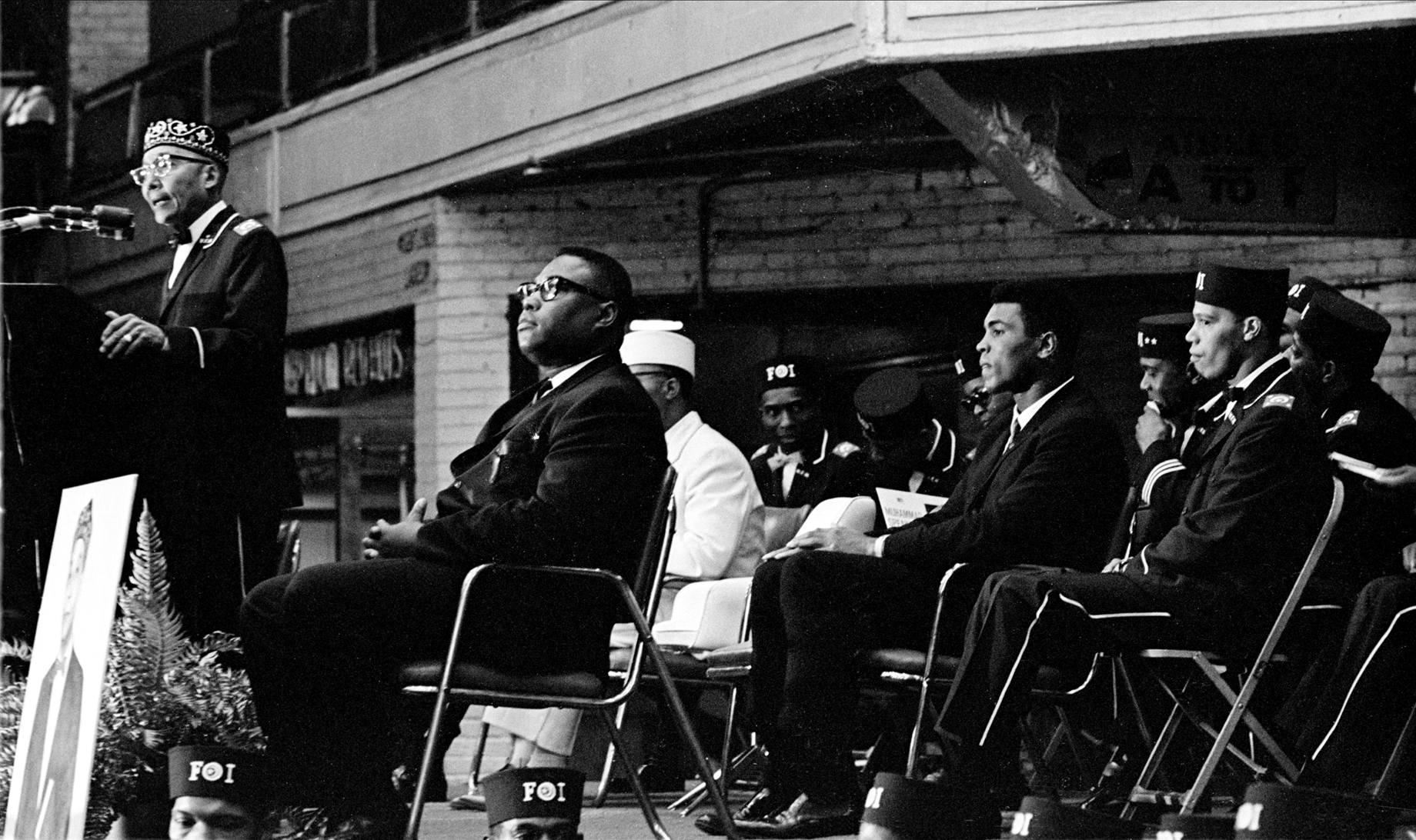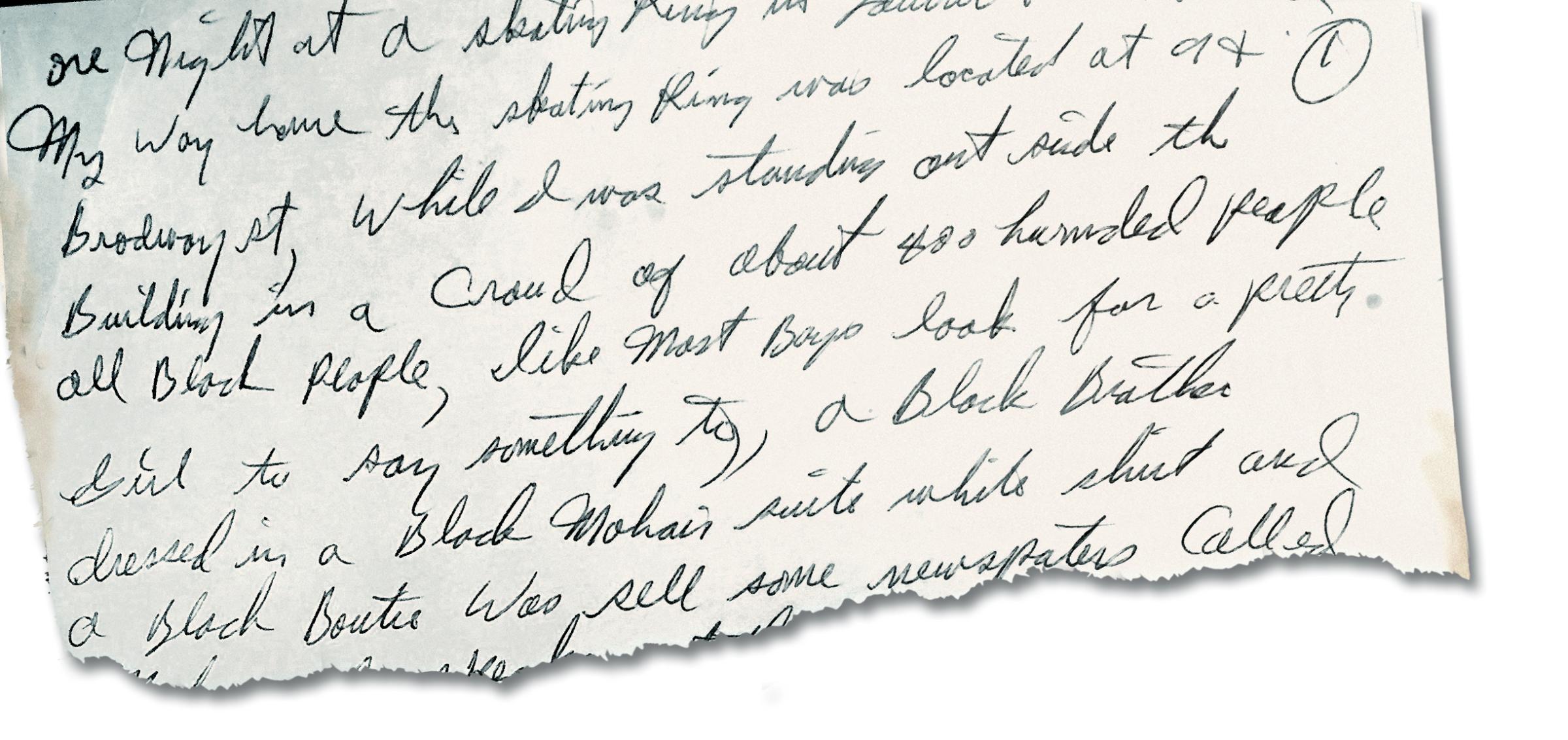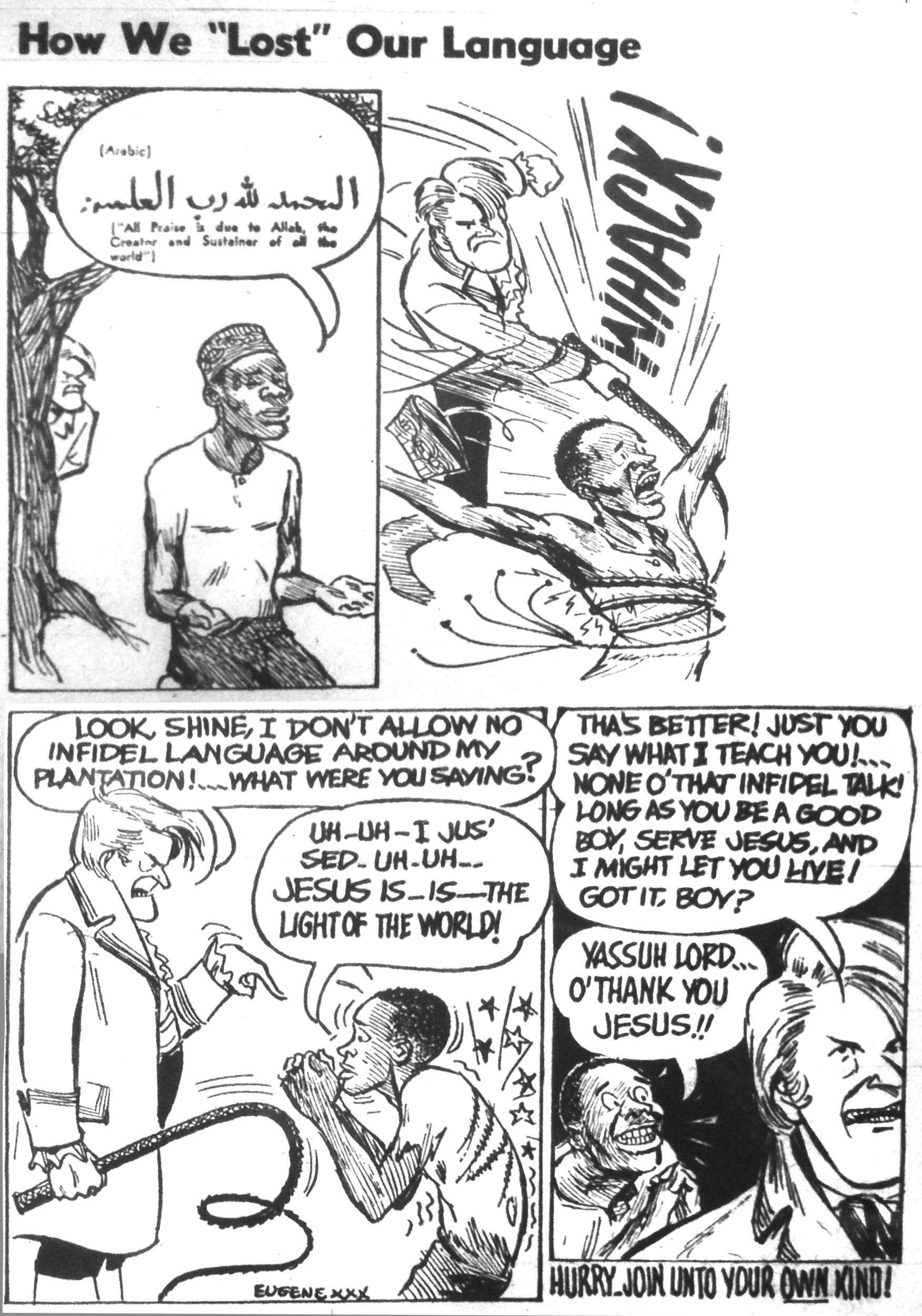
Muhammad Ali‘s public conversion to Islam, in 1964, was among the most defining moments of his remarkable life. The decision enraged his critics — his hometown newspaper continued to refer to Ali by his birth name, Cassius Clay, for years to come — and led him to refuse to serve in Vietnam, a stand that cost him his title, his livelihood and, ultimately, cemented his status as an American iconoclast.
Ali, who died on June 3, 2016 at age 74, has offered a few different reasons for his embrace of Islam. According to the 1967 book, Black Is Best: The Riddle of Cassius Clay, by former Sports Illustrated writer Jack Olsen, Ali said his first encounter came from a street corner proselytizer in Harlem. He later told Olsen that it came at a Nation of Islam meeting in Miami in 1960 or early 1961, and he also said that his first meeting was in Chicago.
Now there is another version of Ali’s story, which is arguably the most definitive of the bunch, appearing first in TIME.
In his forthcoming book Ali: A Life, out in October from Houghton Mifflin Harcourt, author Jonathan Eig excerpts a letter that Ali wrote to his second wife, Khalilah Camacho-Ali, who was married to the legendary fighter from 1967-1976. In the letter, which Camacho-Ali says her ex-husband wrote some time in the late 1960s, Ali describes seeing a cartoon in the Nation of Islam newspaper, Muhammad Speaks, outside a skating rink in his hometown of Louisville. The cartoon illustrated how white slave owners brutally beat their slaves, while insisting that they pray to Jesus. The message: Christianity was the religion of the oppressive white establishment. “I liked that cartoon,” Ali wrote. “It did something to me. And it made sense.”
You can see the letter below, as well as a transcription of its contents, lightly edited for clarity.

One night at a skating rink in Louisville (I was on my way home), the skating rink was located at 9th and Broadway St., while I was standing outside the building in a crowd of about 400 people, all black people, like most boys [I was looking] for a pretty girl to say something to. A black brother dressed in a black Mohair suit, [with a] white shirt and a black bowtie, was [selling] some newspapers called Muhammad Speaks. At that time it was the first time I had seen a Muhammad Speaks newspaper. The brother walked up to me and said, ‘my brother, do you want to buy a Muhammad Speaks newspaper, so that you can read about your own kind, read the real truth of your history, your true religion, your true name before you were [given] the White Man’s name in slavery?’ He said, ‘oh, by the way there is a meeting that we are having today on 27th and Chestnut St. at 8 o’clock this evening. And at the time it was about 6 o’clock in the evening. I told him OK, I will be there. But I had no intention to go to any meeting. But I did buy the Muhammad Speaks paper. And [one] thing in the paper [made] me keep the paper, and that was a cartoon. And the cartoon was about the first slaves that arrived in America, and the cartoon was showing how the black slaves were slipping off at the plantation to pray in the Arabic language facing the east. And the white slave master would run up behind the slave with a whip and hit the poor [slave] on the back with a whip and say, ‘what are you doing praying in that language, you know what I told you to speak,’ and the slave said, ‘yes sir, yes sir, Master. I will pray to Jesus, sir, Jesus.’ And I liked that cartoon. It did something to me. And it made sense.
Ali’s description of the cartoon matches a strip printed in the December 1961 edition of Muhammad Speaks, below.

Camacho-Ali asked Muhammad to write the letter after she confronted him about his extramarital dalliances. Explain, she instructed him, why you embraced Islam in the first place. “You might be big,” Camacho-Ali tells TIME. “But you’re not bigger than Allah. You’ve got to check yourself. There are consequences when you commit adultery.”
Eig says he paid Camacho-Ali $600 for the letter. “In all likelihood, Ali’s interest in the Nation Of Islam grew over time and repeated exposures,” Eig says. “The incident he describes in the letter—picking up the newspaper and reading the cartoon—may have been one in a series of influential events. But this is the only time we know of that he wrote the story of his indoctrination in his own words. That would seem to suggest, at the very least, that it was a key moment in his journey.”
Camacho-Ali sees the first anniversary of Ali’s passing as another chance to celebrate him, flaws and all. “Allah has opened the door for him in paradise,” she tells TIME. “He’s not suffering anymore. I cherish the good moments. There was more good than bad. It was a blessing to be a part of that journey.”
More Must-Reads from TIME
- Cybersecurity Experts Are Sounding the Alarm on DOGE
- Meet the 2025 Women of the Year
- The Harsh Truth About Disability Inclusion
- Why Do More Young Adults Have Cancer?
- Colman Domingo Leads With Radical Love
- How to Get Better at Doing Things Alone
- Michelle Zauner Stares Down the Darkness
Write to Sean Gregory at sean.gregory@time.com